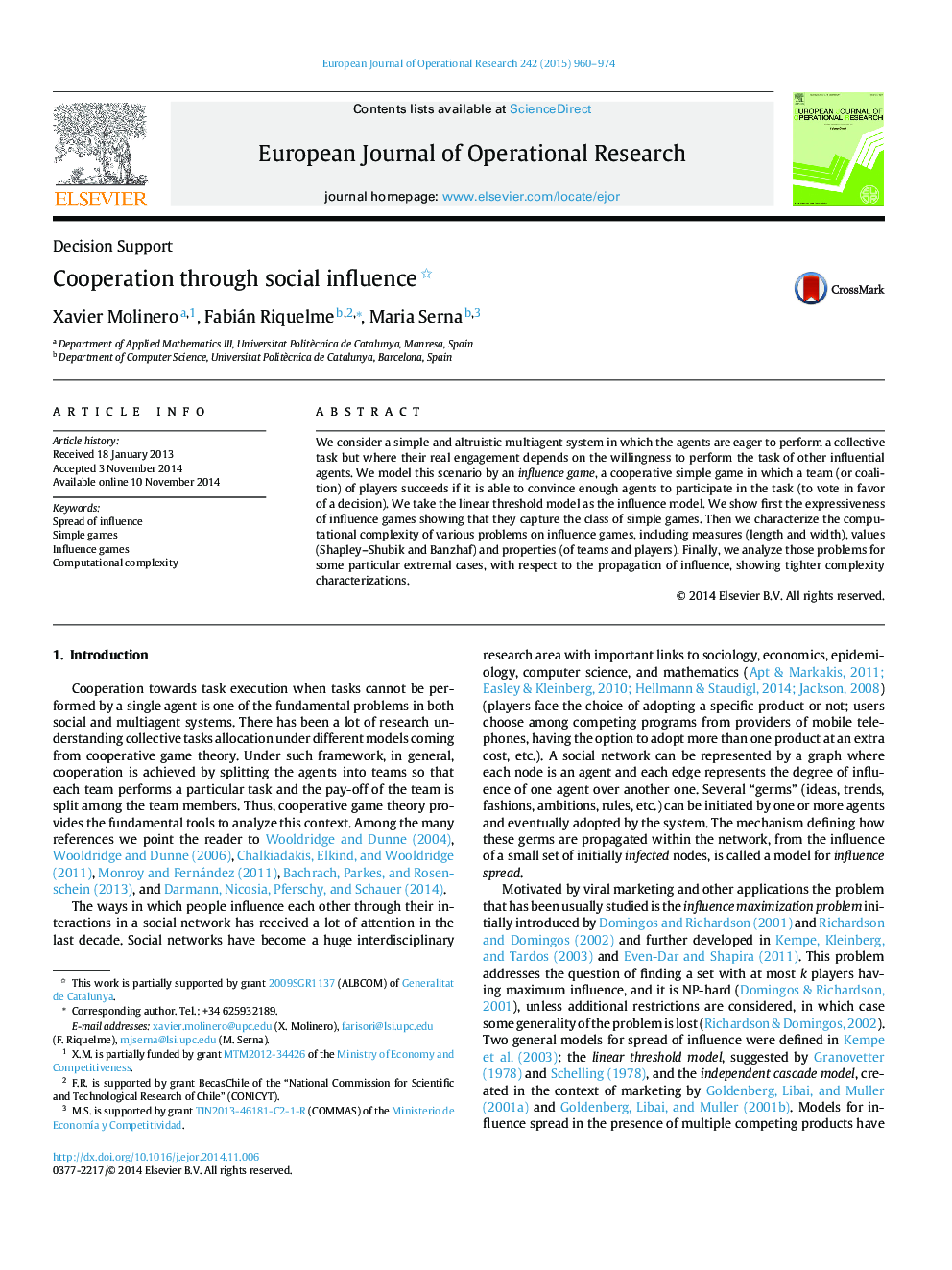| Article ID | Journal | Published Year | Pages | File Type |
|---|---|---|---|---|
| 478094 | European Journal of Operational Research | 2015 | 15 Pages |
•We analyze cooperation in multiagent systems based on a model for influence spread.•To do this we defined influence games, which capture the class of simple games.•In context, computational complexity of several problems of simple games is analyzed.•Extreme cases with respect to the propagation of influence are also analyzed.
We consider a simple and altruistic multiagent system in which the agents are eager to perform a collective task but where their real engagement depends on the willingness to perform the task of other influential agents. We model this scenario by an influence game, a cooperative simple game in which a team (or coalition) of players succeeds if it is able to convince enough agents to participate in the task (to vote in favor of a decision). We take the linear threshold model as the influence model. We show first the expressiveness of influence games showing that they capture the class of simple games. Then we characterize the computational complexity of various problems on influence games, including measures (length and width), values (Shapley–Shubik and Banzhaf) and properties (of teams and players). Finally, we analyze those problems for some particular extremal cases, with respect to the propagation of influence, showing tighter complexity characterizations.
